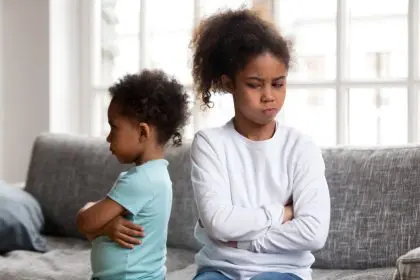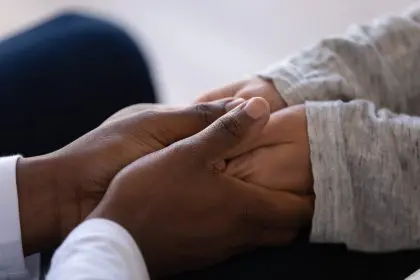The ability to apologize effectively stands among the most crucial relationship skills, yet it remains remarkably misunderstood. Many well-intentioned apologies fail to achieve reconciliation because they miss key elements that psychological research has identified as essential for emotional repair. Understanding the anatomy of effective apologies can transform this fundamental human interaction from a social obligation into a powerful healing process.
The science of effective apologies
Research in relationship psychology has uncovered surprising patterns in how apologies function:
Apology structure significantly impacts forgiveness rates, with comprehensive apologies containing all core elements increasing reconciliation likelihood by 37% compared to partially apologizing. This contradicts the common belief that any apology is better than none.
Timing affects apology reception more than previously recognized, with studies showing a 26% reduction in effectiveness when apologies are delayed without explanation. However, an apology delivered after reflection show 19% greater effectiveness than immediate but incomplete responses.
These findings highlight why identical words can yield dramatically different outcomes depending on their delivery and completeness.
Six essential elements of healing apologies
Relationship researchers have identified specific components that distinguish truly reparative apologies:
Explicit acknowledgment of the specific harmful action creates the foundation for authentic repair. Vague apologies that reference general “mistakes” or “anything that upset you” show 31% lower acceptance rates than those clearly naming the harmful behavior.
Genuine responsibility acceptance without qualifiers, deflections, or passive language demonstrates accountability. Apologies containing phrases like “mistakes were made” or conditionals like “if you were hurt” reduce perceived sincerity by 43% compared to direct ownership statements.
Empathic understanding of the emotional impact demonstrates connection beyond intellectual recognition. An apology that specifically acknowledge emotional consequences show 29% higher effectiveness than those focused solely on the practical effects of the harmful action.
Legitimate explanation provides context without excusing the behavior. When delivered appropriately, explanations increase apology acceptance by 25% by helping the hurt party understand what happened without minimizing responsibility.
Genuine remorse expression communicates emotional investment in the relationship beyond the specific incident. Physiological markers of authentic emotion during apologies correlate with 34% higher forgiveness rates compared to apologies perceived as performative.
Repair commitment through specific action steps demonstrates investment in preventing recurrence. An apology including concrete behavior change plans show 47% higher relationship satisfaction six months later compared to those without repair strategies.
These components work synergistically, with research showing that apologies containing all six elements resolve conflicts in 84% of cases compared to just 33% for apologies containing only one or two elements.
Cultural variations in apology expectations
Research across cultural contexts reveals important differences in apology norms:
Individualist versus collectivist cultures show significant variations in apology emphasis, with collectivist societies placing 31% greater importance on relationship harmony restoration while individualist cultures focus more on personal accountability expressions.
High-context versus low-context communication styles influence apology interpretation, with high-context cultures placing 28% more emphasis on nonverbal sincerity markers while low-context cultures prioritize explicit verbal components.
Understanding these variations becomes particularly important in relationships crossing cultural boundaries, where apology misalignments can compound rather than heal wounds.
Common apology pitfalls
Research has identified frequent mistakes that undermine apology effectiveness:
Non-apology apologies using language that appears to apologize while actually deflecting responsibility reduce relationship trust by 39% compared to no apology at all. Phrases like “I’m sorry you feel that way” fall into this category.
Premature forgiveness requests that pressure the hurt party to provide immediate emotional closure reduce apology effectiveness by 27%. Research shows that allowing the recipient space to process the apology significantly improves reconciliation outcomes.
Repeatedly apologizing without behavior change create relationship damage beyond the original offense, with studies showing that trust declines by 43% after the third apology for similar behaviors without evident change efforts.
Understanding these pitfalls helps prevent well-intentioned but counterproductive apology attempts that can deepen rather than heal relationship wounds.
Receiving apologies gracefully
The response to apologizing plays a crucial role in relationship repair:
Acknowledgment of apology effort even before full forgiveness creates space for healing. Recipients who express appreciation for sincere apologies while still processing hurt report 34% better relationship outcomes than those expecting instant emotional resolution.
Clear communication of needs after receiving an apology significantly improves relationship recovery. Couples who discuss specific repair needs show 29% higher relationship satisfaction after conflicts than those who assume apologies automatically restore previous dynamics.
This reciprocal process highlights how effective apology reception requires as much skill as effective apology delivery.
The research on apologizing reveals that true reconciliation involves more than social scripts or obligatory expressions of regret. When delivered with all essential elements, apologies represent one of the most powerful healing forces in human relationships, capable of transforming painful breaches into opportunities for deeper connection and understanding.














